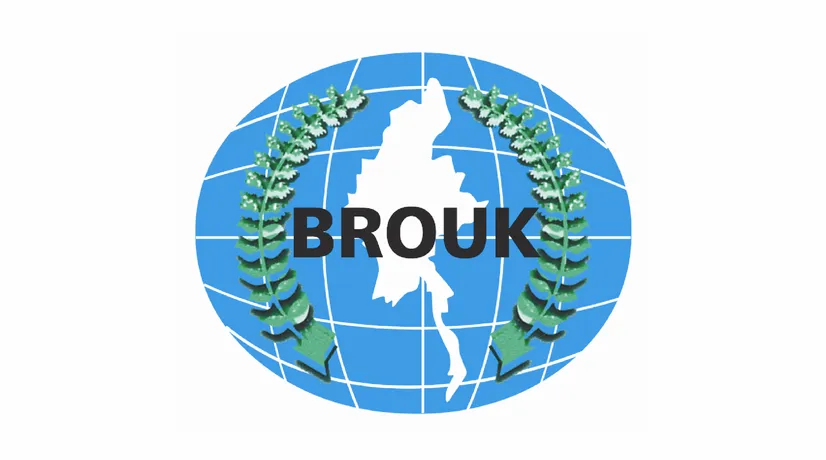Myanmar’s Approach to Coronavirus is Putting Lives at Risk
27 March 2020

For Immediate Release: 25th March 2020
- Myanmar’s claims about caseload are “dangerous and deeply irresponsible”
- Bangladesh should lift restrictions in Rohingya refugee camps
The government of Myanmar is putting lives at risk, including tens of thousands of Rohingya people trapped in camps in Rakhine State, by turning a blind eye to the threat of coronavirus, the Burmese Rohingya Organisation UK (BROUK) said today.
Although Southeast Asia is among the regions in the world most affected by the COVID-19 pandemic, Myanmar has so far claimed that only two cases have been discovered inside its borders.
“Once again, the government of Myanmar is proving that it has a problem with the truth. Until recently, authorities claimed that not a single case had been found in the country – this is not just absurd, but also dangerous and deeply irresponsible,” said Tun Khin, President of BROUK.
“The government must immediately provide transparent information to people in Myanmar about the virus outbreak, and take all necessary steps to protect and provide care to those in need. This is particularly true for the tens of thousands of vulnerable people who live in overcrowded and unhygienic displacement camps across the country.”
Myanmar shares a land border with China, where the virus originated, and other countries that have reported substantial number of cases, including Thailand and India. According to the Myanmar Ministry of Health, however, only some 200 tests have been carried out in a population of more than 53 million people since the virus started spreading.
On Monday 23rd March, authorities said they had identified the first two cases in the country. Media reports also claimed that at least four people have died in quarantine in Myanmar. Over the past weeks, authorities have taken some steps to contain the virus, including closing its borders to foreigners and limiting public gatherings.
Refugees and internally displaced persons (IDPs) are particularly vulnerable to the virus, as they often live in overcrowded camps where freedom of movement and access to healthcare is limited.
There are currently some 241,00 people living in camps or camp-like situations in Myanmar, in Kachin, Kayin, Shan and Rakhine States. These include almost 128,000 mainly Rohingya who have been trapped in de facto internment camps in Rakhine State since state-sponsored violence against Muslims swept the state in 2012.
The government continues to impose a ban on mobile data services across parts of Rakhine and Chin States, limiting people’s access to information about the virus.
“Myanmar authorities must immediately lift all restrictions on humanitarian access across the country, and ensure that those who have been forced to flee their homes can reach the healthcare they need. Tens of thousands of people in displacement camps in Kachin, Kayin, Shan and Rakhine States are extremely vulnerable to the virus,” said Tun Khin.
“For Rohingya in Rakhine State, life resembles an open-air prison where their freedom of movement is already extremely limited. The threat of COVID-19 has now made a hellish situation even worse, while the government is standing idly by.”
Restrictions in Bangladesh
BROUK is concerned about the situation facing close to one million Rohingya refugees in Bangladesh, the majority of whom live in overcrowded refugee camps in Cox’s Bazar. Hundreds of thousands of Rohingya fled into Bangladesh after Myanmar launched genocidal attacks in Rakhine State in 2016 and 2017, killing thousands and torching whole villages to the ground.
Access to healthcare is already challenging in the camps, while the Bangladeshi authorities have in recent weeks started fencing in the major settlements, further restricting the already limited freedom of movement of refugees.
The government has restricted mobile data services in the camps since September 2019. This not only makes refugees’ ability to access information about the pandemic more difficult, but has also complicated the efforts of humanitarian aid groups.
“Bangladesh has been exceptionally generous in opening its borders to hundreds of thousands of Rohingya who are fleeing a genocide. It is concerning, however, that at a time when refugees need access to information and quality services more than ever, authorities are tightening restrictions in the camps,” said Tun Khin.
“We urge the government of Bangladesh to do everything it can to ensure that Rohingya refugees are protected from the virus, including by lifting the ban on internet services, and ending fencing around the camps.”
For more information, please contact Tun Khin +44 7888714866.
၎
င
၎
၎
Announcements
28 February 2025
Asian NGO Network on National Human Rights Institutions , CSO Working Group on Independent National Human Rights Institution (Burma/Myanmar)
Open letter: Removal of the membership of the dis-accredited Myanmar National Human Rights Commission from the Southeast Asia National Human Rights Institution Forum

Progressive Voice is a participatory rights-based policy research and advocacy organization rooted in civil society, that maintains strong networks and relationships with grassroots organizations and community-based organizations throughout Myanmar. It acts as a bridge to the international community and international policymakers by amplifying voices from the ground, and advocating for a rights-based policy narrative.